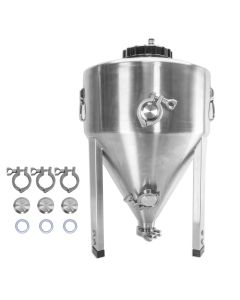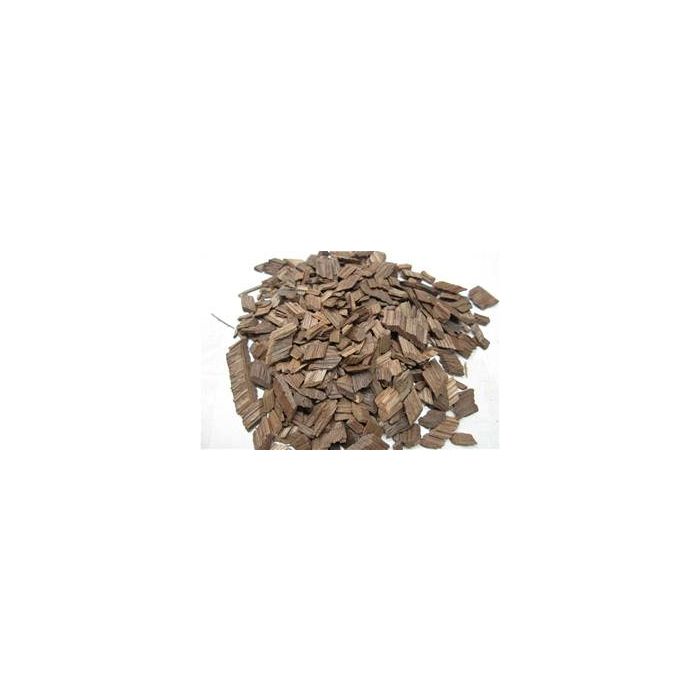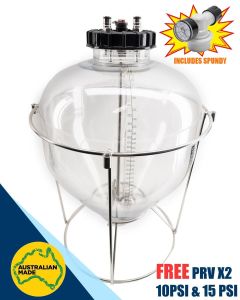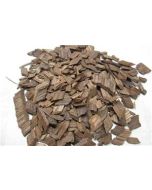- Home
- French Oak Staves100g
French Oak Staves100g

French Oak Chips 200g
French Oak staves give a barrel aged complexity and flavour to wines and spirits. Renowned for their enhancement of Whiskeys and Bourbons and Rums Use 10-15g per litre of spirit.
Recipe Suggestions
Looking for inspiration? Click on the links below to take a look at our All Grain recipe kits, Kit & Kilo recipe kits and Fresh Wort Kits.
Explore our hops options


Research has shown that in order to extract the most flavour from hops, and to minimise contact with oxygen, pressure fermenters are the recommended fermenters for any style. If you want to produce the best beer possible, please take a look at our Australian Made PET Fermenters.
-
 Fermenter Apollo Titan 30L Stainless Steel Pressure Rated Unitank FermenterRating:100%Special Price $391.96 was $549.95
Fermenter Apollo Titan 30L Stainless Steel Pressure Rated Unitank FermenterRating:100%Special Price $391.96 was $549.95
FAQ: Additives and Minerals in Homebrewing
Below you will find the questions we get asked the most regarding our additives and minerals.
Please click on one of the questions below to see the answer.
What are additives and minerals in homebrewing?
Additives and minerals are compounds used to adjust water chemistry and enhance specific characteristics of beer during the brewing process. Common examples include calcium variants, magnesium variants, and other salts.
How do calcium and magnesium variants affect brewing?
Calcium supports enzyme activity during mashing and helps with yeast flocculation. Magnesium influences yeast metabolism and contributes to malt and hop utilization, affecting flavor and aroma.
What are the benefits of using additives and minerals?
Using additives and minerals allows brewers to tailor their water profiles to match desired beer styles. Proper adjustments improve enzymatic activity, pH levels, and overall beer quality.
What are the most common additives and minerals used in homebrewing?
The most common include:
- Calcium Chloride: Enhances maltiness and mouthfeel in beer.
- Calcium Sulfate (Gypsum): Increases hop bitterness and sulfate levels, ideal for hop-forward beers.
- Epsom Salt (Magnesium Sulfate): Provides magnesium and can enhance yeast performance.
- Table Salt (Sodium Chloride): Can accentuate malt flavors and reduce perceived bitterness.
How do I determine the right amount of additives and minerals to use?
Use water calculators based on the beer style and desired water profile. These calculators help you adjust the mineral content to achieve optimal results.
Can I mix different additives and minerals together?
Yes, you can blend additives and minerals to create specific water profiles. However, precise measurements are crucial to avoid over-adjustment that could impact flavor.
When should I add additives and minerals during the brewing process?
Most adjustments are made during the mashing process. Add them before mashing in or during the mash to ensure proper interaction with the enzymes.
What is the best way to store additives and minerals?
Store additives and minerals in a cool, dry place away from sunlight to prevent clumping or moisture absorption. Airtight containers, such as resealable bags or jars with lids, help maintain their effectiveness.
Can I use tap water for brewing, or should I use distilled water?
Both options are viable. Tap water may require adjustments depending on its mineral content, while using distilled water allows you to build the desired water profile from scratch.
Are additives and minerals necessary for all homebrewers?
While they're not essential for beginners, they can significantly enhance beer quality and flavor. As your brewing skills advance, experimenting with additives and minerals can help you create more nuanced and precise brews.
Remember that proper water chemistry is a crucial aspect of homebrewing. By understanding the effects of different additives and minerals and using them judiciously, you can fine-tune your brewing process to achieve exceptional results.
| Ribbon | None |
|---|---|
| Discontinued | No |
| Order By Request | No |
| Sale | No |
| New | No |



